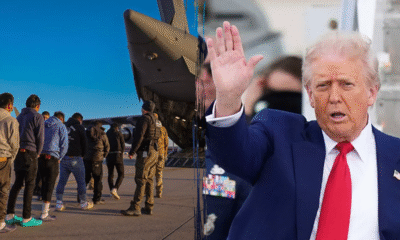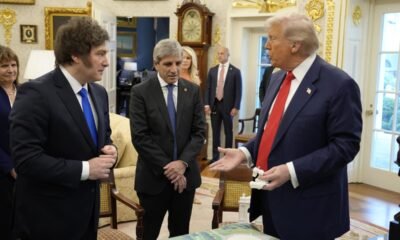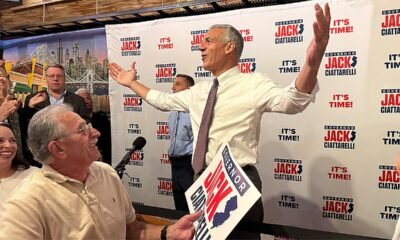INTERNACIONAL
Challenger primed to face GOP’s longtime Senate dissenter as Trump brings new focus to Alaska
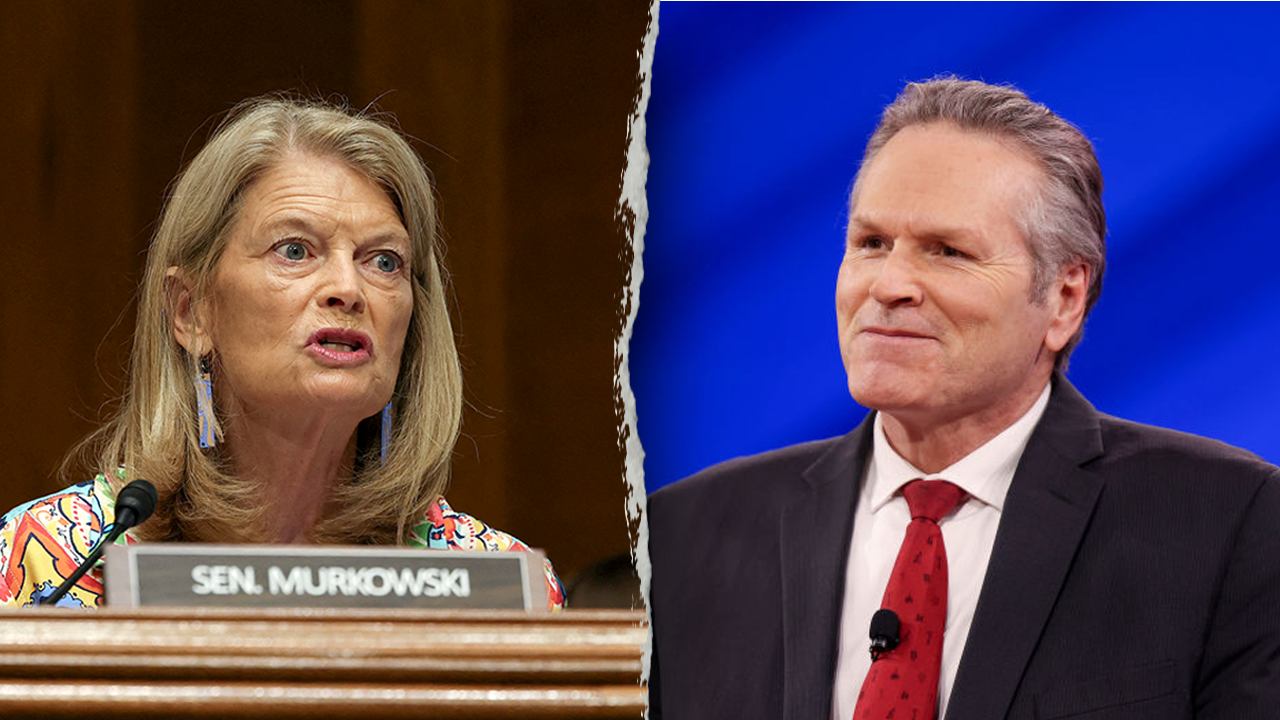
NEWYou can now listen to Fox News articles!
EXCLUSIVE: Alaska Gov. Mike Dunleavy is primed to announce a 2028 run for U.S. Senate against Sen. Lisa Murkowski, the Republican legislator who repeatedly has clashed with President Donald Trump, according to several sources familiar with the situation or close to the governor.
«He’s not going to quit his term,» a top source close to Dunleavy who used to work with him in Juneau, Alaska, told Fox News Digital of the governor’s long-term plans — as the next Senate race in the Last Frontier falls in 2026 with incumbent Republican Dan Sullivan.
The last governor to resign to run for higher office — 2008 vice presidential nominee Sarah Palin — «never recovered,» the source said.
Dunleavy «cares deeply about and wants Alaska to succeed,» the source said, adding the governor recently quipped that he can’t understand why people would want to «live with all this concrete» in Washington and not in the verdant Arctic as one reason the Pennsylvania-born Republican likes to otherwise avoid the East Coast.
‘HOMELAND WOULD’VE BEEN STOLEN’: AK NATIVES SOUND OFF ON BIDEN ENERGY BANS AS TRUMP OFFICIALS TOUR TUNDRA
«But he knows that (being in Washington) is the only way to get things done,» the source said, adding that Dunleavy was the second governor to endorse Trump in 2016, and that a top member of the White House staff said he visits more than any other governor despite a 3,500-mile trek.
«He’s not about an ego and pushing himself in front of the cameras. He gets stuff done … He’s not like, ‘please put me on this committee’ or ‘I have to attend this ball’. He doesn’t like those types of things,» the source added.
«Trump has talked to him before about running and wants him to run.»
Dunleavy was notably present at Joint Base Elmendorf-Richardson in Anchorage, Alaska, when Trump met with Russian President Vladimir Putin Aug. 15.
Despite being a red state, it is an «uphill climb» to get elected governor as a Republican, another source close to the situation told Fox News Digital Wednesday.
Former Gov. Jay Hammond was the last Republican to win reelection there, in 1978. Another Republican, Sean Parnell, who rose to the job after Palin’s 2009 departure, did not technically win reelection during the 2010 cycle that kept him in office.
«A lot of people have mentioned this (race) to him and … I think it is a very viable option for him,» the source said.
«Obviously there are a lot of frustrations with Senator Murkowski,» he said, adding that the disparity in Trump’s relationship between the two Alaskans is «no secret.»
«Governor Dunleavy has been not only a successful governor, but a pretty strong ally for him. So it’s only natural that he’d be hearing that from Alaskans — but also from folks in the broader MAGA movement.»
ALASKA CAN BE CURE FOR NATION’S ILLS WITH HELP FROM TRUMP ADMIN, GOVERNOR SAYS
Sen. Lisa Murkowski, left; Alaska Gov. Mike Dunleavy, right. (Reuters; Getty Images)
Dunleavy, like Murkowski, also has been successful in the state’s ranked-choice voting system — which critics claim has inordinately helped Democrats. Mary Peltola, a Democrat, notably won the seat of the late Republican Rep. Don Young, who helmed the at-large district for decades.
Murkowski also «never faced a challenger like him» who has broad support outside conservative circles, the second source noted.
The governor is very close with Native communities on the North Slope and beyond, where residents in far-flung communities have praised him for his focus on Alaska’s energy development potential and allocation of resources for issues like rural education and infrastructure.
A top Alaska political analyst and pollster agreed.
«Conservatives would welcome an opportunity to unseat Murkowski,» he said in a Thursday interview.
«The fact that (Trump) and Murkowski have had such a strained relationship and Dunleavy and the president having a good relationship is really what has led us to this point in the conversation,» he said.
One area that all parties agreed on is the importance of the Native vote in Alaska elections — particularly those featuring Murkowski or Dunleavy. While the Native electorate leans left, they also cross party lines to support both such candidates — setting up what the pollster described as an interesting showdown.
CLICK HERE TO GET THE FOX NEWS APP
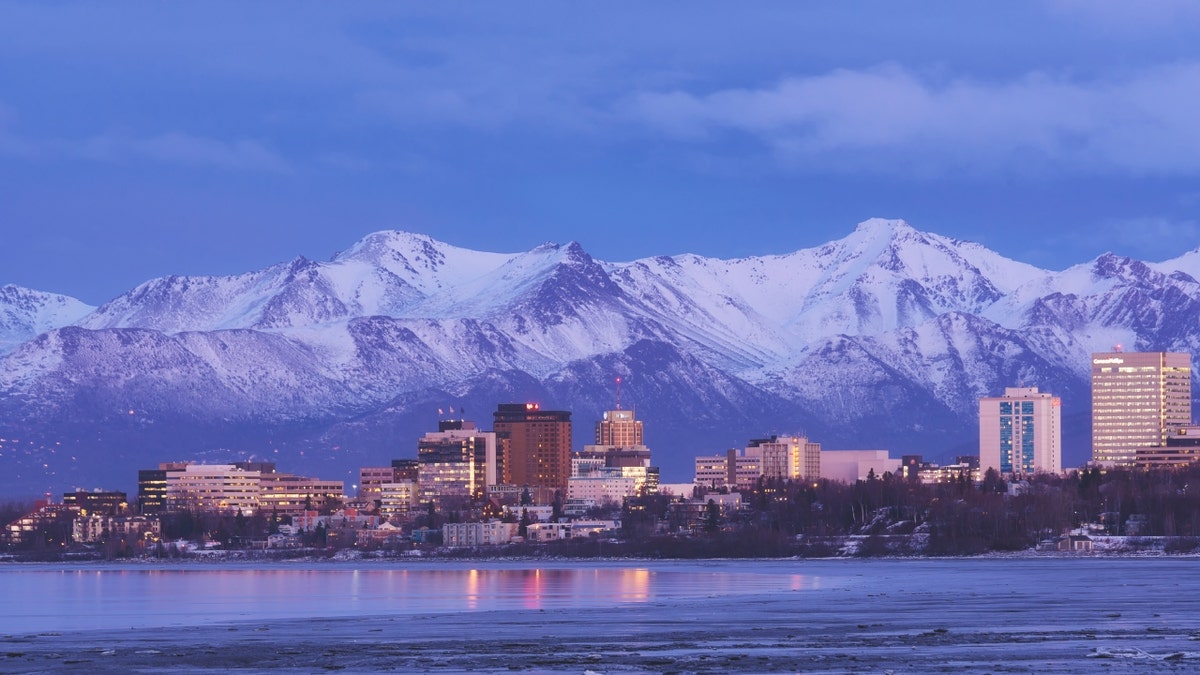
Anchorage, Alaska’s skyline. (Zihao Chen/Getty Images)
«What would happen in a matchup like this is they would feel conflicted and you would see some of them probably back Dunleavy and some of them back Murkowski … the ones that are primarily involved in the oil and gas and resources business, they view Murkowski as strong on those issues as well as Dunleavy and so they would they would feel conflicted about who to support.»
The difference between the two, he reiterated, is that Dunleavy’s other base is firmly on the conservative right, while Murkowski’s is in the center where she also draws support from moderate Democrats.
Murkowski, daughter of another Alaska Republican governor, Frank Murkowski, notably also mounted a strong enough bid to win a write-in campaign in 2010 after being knocked off the GOP ticket by Tea Party candidate Joe Miller.
All of those who spoke to Fox News Digital agreed the race would be a very close one to watch.
Alaska also uniquely swears-in its governors in December — a month earlier than the presidency, Congress and most other state leaders.
Fox News Digital reached out to a representative for Dunleavy as well as a contact listed for Murkowski’s campaign and her Senate office and the White House for comment.
state and local,republicans,elections,alaska,campaigning,donald trump
INTERNACIONAL
Hallazgo inédito: identifican una galaxia vecina con moléculas claves en los procesos químicos de la vida

Por primera vez, la presencia de moléculas orgánicas complejas en el hielo interestelar de otra galaxia ha sido comprobada de manera directa. El análisis, basado en observaciones del telescopio espacial James Webb en la Gran Nube de Magallanes, ofrece evidencia clara de que los procesos químicos necesarios para la vida no son exclusivos de nuestra galaxia y pueden desarrollarse en entornos mucho más diversos de lo que se pensaba.
La detección de moléculas orgánicas complejas en el hielo de una protoestrella fuera de la Vía Láctea marca un avance relevante para la astrobiología. Un equipo internacional liderado por Marta Sewilo, astrónoma de la University of Maryland y la NASA, publicó los resultados el 20 de octubre de 2025 en The Astrophysical Journal Letters.
Esta investigación utilizó el James Webb Space Telescope para descubrir, por primera vez, compuestos básicos para la vida en la Gran Nube de Magallanes, la galaxia más cercana a la nuestra. El descubrimiento se concentró en la protoestrella joven ST6, donde los científicos detectaron cinco moléculas orgánicas complejas: metanol, etanol, formiato de metilo, acetaldehído y ácido acético.

Aunque algunos de estos compuestos se emplean en la Tierra para fines industriales y alimenticios, jamás habían sido identificados en hielos fuera de la Vía Láctea. Además, el equipo encontró señales espectrales de glicolaldehído, una molécula precursora de estructuras como el ARN, aunque se requieren estudios adicionales para su confirmación definitiva.
La Gran Nube de Magallanes está ubicada a unos 160.000 años luz de la Tierra y presenta características únicas. Su baja metalicidad —una cantidad de elementos pesados menor que la de la Vía Láctea— la convierte en un entorno similar al universo primitivo.
Esta condición, combinada con niveles elevados de radiación ultravioleta, transforma a la galaxia en un verdadero laboratorio natural para analizar cómo surgen las moléculas complejas en ambientes extremos. La astrónoma Sewilo explicó que explorar este tipo de entorno permite entender mejor la química de galaxias más distantes y jóvenes.
“El entorno de baja metalicidad, con menos elementos más pesados que el hidrógeno y el helio, se asemeja a galaxias de épocas cosmológicas más tempranas. Lo que aprendemos en la Gran Nube de Magallanes puede aplicarse a la comprensión de galaxias más distantes, cuando el universo era mucho más joven”, señaló Sewilo.

Los avances logrados fueron posibles gracias al instrumento de infrarrojo medio (MIRI) a bordo del James Webb Space Telescope. Su sensibilidad y resolución angular permitieron identificar débiles señales espectrales asociadas a hielos alrededor de una protoestrella tan distante, algo inalcanzable con tecnologías previas.
Sewilo destacó la importancia del JWST: “Es gracias a la excepcional sensibilidad y alta resolución angular del JWST que podemos detectar estas débiles características espectrales asociadas a hielos alrededor de una protoestrella tan distante. La resolución espectral del JWST es lo suficientemente alta como para permitir identificaciones fiables”.
Hasta ahora, solo el metanol había sido detectado de forma concluyente en hielos alrededor de protoestrellas, y únicamente en nuestra propia galaxia. El nuevo hallazgo proporciona una cantidad de información sin precedentes sobre la composición química de hielos interestelares en otras galaxias, revelando un universo más rico y diverso de lo que se pensaba.
La presencia de moléculas orgánicas complejas en hielo interestelar en condiciones similares a las del universo temprano sugiere que los bloques fundamentales para la vida podrían haberse formado mucho antes y en ambientes más variados de los que se consideraba posible. Esto significa que la química necesaria para crear biomoléculas puede ser un proceso común en distintos rincones y épocas del universo.

Aunque el estudio no demuestra la existencia de vida más allá de la Tierra, sí sugiere que estas moléculas podrían persistir durante la evolución de los sistemas planetarios y llegar a incorporarse a planetas jóvenes. Así, la vida podría tener la oportunidad de surgir en lugares mucho más diversos de lo que se creía hasta ahora.
El equipo liderado por Sewilo se propone ampliar la investigación a otras protoestrellas, tanto en la Gran Nube de Magallanes como en la Pequeña Nube de Magallanes, para comparar la abundancia de estas moléculas con la existente en la Vía Láctea.
Hasta el momento, solo hay una fuente conocida en la Gran Nube de Magallanes y cuatro en la Vía Láctea que presentan detección de estas moléculas en hielos interestelares. El objetivo es conseguir muestras más amplias para confirmar las posibles diferencias entre galaxias y comprender mejor el origen y la distribución de la química compleja en el universo.
Este avance marca un paso clave para desentrañar cómo los ingredientes fundamentales para la vida pueden surgir en una gran variedad de contextos cósmicos.
Science / Technology,N/A
INTERNACIONAL
Trump admin on pace to shatter deportation record by end of first year: ‘Just the beginning’
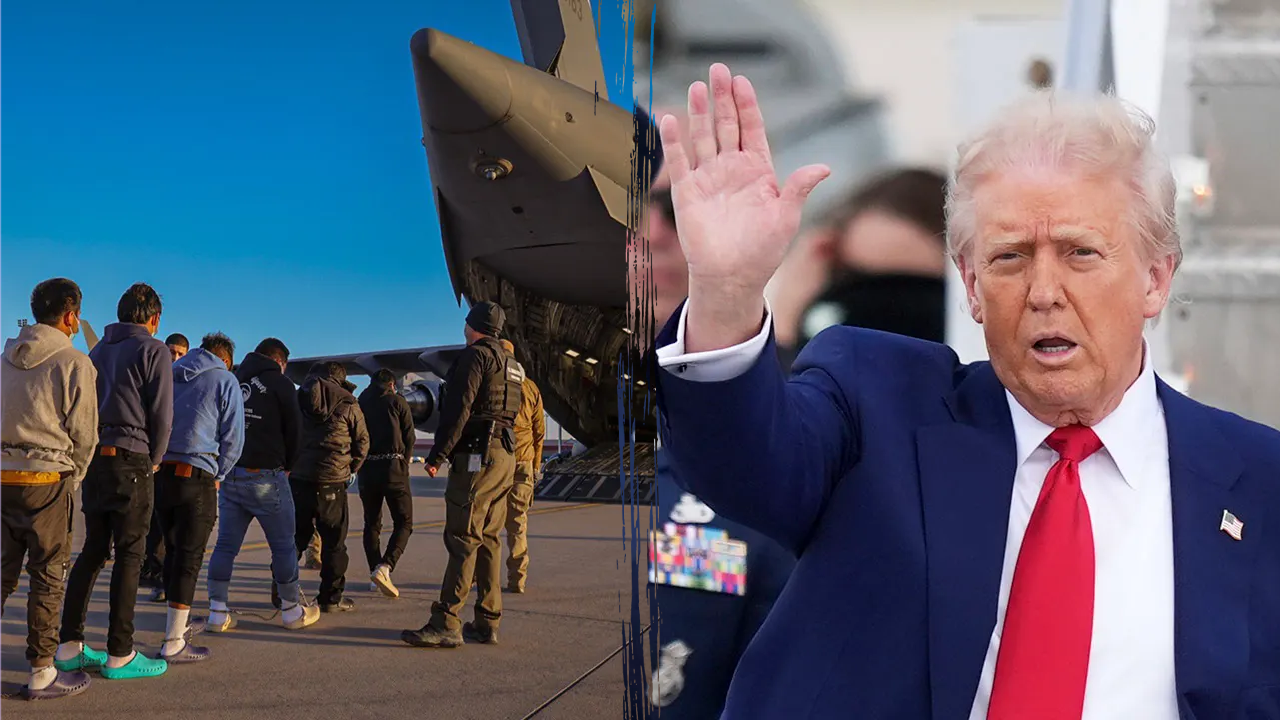
DHS confirms cartel bounties on ICE and CBP agents in Chicago
Assistant Secretary of the Department of Homeland Security Tricia McLaughlin says Mexican cartels and U.S. gangs are offering up to $50,000 for attacks on federal officers in a coordinated campaign targeting ICE and CBP agents on ‘America Reports.’
NEWYou can now listen to Fox News articles!
EXCLUSIVE: With over 500,000 illegal aliens deported since President Donald Trump took office in January, the administration is on track to significantly exceed the record number of illegals deported out of the United States.
Since Trump’s return to the Oval Office on Jan. 20, the administration has deported over 515,000 illegal aliens, according to a high-ranking official at the Department of Homeland Security.
DHS Assistant Secretary Tricia McLaughlin told Fox News Digital the administration is «on pace to shatter historic records» by deporting 600,000 illegals by the end of Trump’s first year back in office. She said that in total, more than two million illegal aliens have left the U.S., including 1.6 million who voluntarily self-deported, as well as the over 515,000 deportations. Another 485,000 illegal aliens have been arrested by DHS since Trump took office.
McLaughlin said that «this is just the beginning» and that Trump and Homeland Security Secretary Kristi Noem «have jumpstarted an agency that was vilified and barred from doing its job for the last four years.»
DEM JUDGE IN HOT SEAT AFTER DHS EXPOSES ‘WHOLE NEW LEVEL’ OF ACTIVISM, SHELTERING ILLEGAL IMMIGRANT
A high-ranking Homeland Security official said the administration is set to «shatter» the record for illegal aliens deported in President Trump’s first year. (White House; Rebecca Blackwell/AP Photo)
«Illegal aliens are hearing our message to leave now or face the consequence. Migrants are now even turning back before they reach our borders,» said McLaughlin, pointing to what she said has been a 99.99 percent drop in migration through Panama’s Darien Gap, which is a key migration route to the U.S.
«In the face of a historic number of injunctions from activist judges, ICE, CBP, and the U.S. Coast Guard have made historic progress to carry out President Trump’s promise of arresting and deporting illegal aliens who have invaded our country.»
Just this weekend, DHS said that it continued its sweep of the «worst of the worst» criminal illegal aliens across the country amidst the ongoing government shutdown. Over the weekend, DHS said it arrested illegals convicted of rape of a child, assault, hit-and-run, kidnapping and other crimes.
One of those arrested was Erick Xavier Romero, a Dominican national, who the agency said was convicted of rape of a child in Boston. Another illegal, Guatemalan national, German Osvaldo Cortez-Chajon, was arrested this weekend after being convicted of traveling to meet a child for an unlawful sex act in Dale County, Alabama. A third illegal, Mexican national Graciano Lopez-Flores, was arrested following a conviction of indecent liberties with a child in Orange County, North Carolina.
DHS FLIPS SCRIPT ON MEDIA NARRATIVE WITH NEW DETAILS ABOUT ILLEGAL TEEN ARRESTED BY ICE: ‘SAFETY THREAT’

Left to right, from top: Erick Xavier Romero, German Osvaldo Cortez-Chajon, Graciano Lopez-Flores, Shahed Hassan, Van Pham, Patricia Pimental-Cordero, Ramona Mercado-Vasquez and Karlett Zagal-Salazar. (ICE; DHS)
Also in North Carolina, ICE arrested Shahed Hassan, an illegal from Bangladesh, who was convicted of simple assault, possession of drug paraphernalia, illegally carrying a concealed gun, driving while impaired, probation violation, felony larceny and domestic violence protection order violation in Wake County.
Just to the north, ICE arrested Van Pham from Laos, who was convicted of five counts of abduction and burglary in Fairfax County, Virginia.
In Massachusetts, ICE arrested Patricia Pimental-Cordero, from the Dominican Republic, who was convicted of two counts of hit-and-run in Lawrence, Massachusetts.
Another illegal, Ramona Mercado-Vasquez from the Caribbean island of Dominica, was arrested by ICE in Bergen County, New Jersey, following a conviction for kidnapping and robbery.
In Wisconsin, ICE arrested Mexican national Karlett Zagal-Salazar, who was convicted of drug trafficking.
ICE REVEALS ‘DISTURBING DETAILS’ AFTER AGENCY RESCUED 3-YEAR-OLD ABDUCTED TO MEXICO
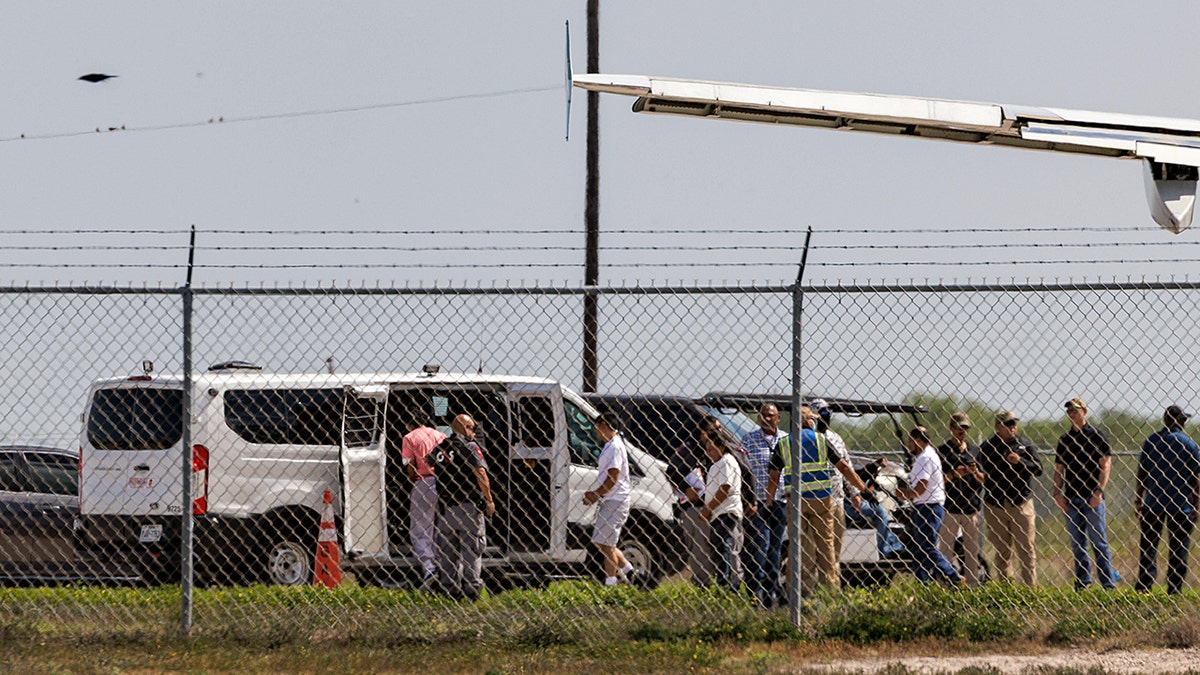
Shackled migrants board a transport van after getting off a plane at the Valley International Airport, Sunday, Aug. 31, 2025, in Harlingen, Texas. (Michael Gonzalez/AP Photo)
Commenting on the arrests, McLaughlin told Fox News Digital that «nothing—not even a government shutdown—will slow us down from making America safe again.»
CLICK HERE TO DOWNLOAD THE FOX NEWS APP
She slammed the Democratic Party, saying, «While Democrats in Congress continue to keep the government shutdown, our ICE law enforcement officers aren’t slowing down in arresting the worst of the worst criminal illegal aliens.»
donald trump,immigration,illegal immigrants,border security,kristi noem,homeland security
INTERNACIONAL
Bolivia: los desafíos del próximo gobierno de Rodrigo Paz

El candidato de centroizquierda del Partido Demócrata Cristiano (PDC), Rodrigo Paz, se impuso con el 54% de los votos al obtener casi diez puntos de ventaja sobre su rival, Jorge Tuto Quiroga. Este triunfo no solo pone fin a dos décadas de hegemonía del Movimiento al Socialismo (MAS), liderado por Evo Morales, sino que también confiere una sólida legitimidad a la nueva administración. Sin embargo, los retos que se vislumbran en el ámbito político, para el gobierno de Paz, que asumirá el 9 de noviembre próximo, son considerables.
La primera gran prueba para Paz será la consolidación de su base de poder en el legislativo. La principal debilidad radica en que el Partido Demócrata Cristiano (PDC) funcionó como un «vientre de alquiler», una estructura instrumental sin arraigo social o nacional que respaldara la candidatura. Aunque Paz capitalizó el voto del «núcleo duro» del MAS en varias regiones, no heredó la estructura partidaria ni la capacidad de movilización de su predecesor. Esta debilidad partidaria genera dos puntos de fricción.
Dentro de la bancada del PDC podrían emerger múltiples facciones, cada una buscando cuotas de poder. Las tensiones que ya se evidenciaron entre Paz y su compañero de fórmula, Edman Lara, durante la campaña podrían exacerbarse, complicando la gobernanza del Ejecutivo y la gestión de la Asamblea Legislativa Plurinacional (ALP).
Así mismo, Paz deberá negociar consensos con otros partidos. Si bien cuenta con el respaldo explícito de Unidad de Samuel Doria Medina, que se concretó en el balotaje, las relaciones con el partido de Quiroga, LIBRE, son más tensas. Aunque comparten afinidades ideológicas (economía de mercado, apertura exterior, respeto a las instituciones), las secuelas de la agresiva campaña electoral dificultarán una posible alianza. La mayoría simple en la ALP está asegurada con la alianza del PDC con Unidad, pero para reformas de mayor calado, como un eventual cambio constitucional, necesita acercarse y pactar con LIBRE, que posee la llave de los dos tercios.
Un segundo desafío crucial será la relación con los poderosos y decisivos movimientos sociales. El apoyo de estas organizaciones a la fórmula del PDC, si bien fue un factor determinante para su victoria, no garantiza una lealtad incondicional. Con un notable historial de empoderamiento político, estas organizaciones buscarán proteger sus privilegios y, si se sienten desfavorecidas, podrían recurrir a movilizaciones que amenacen la estabilidad social.
Su apoyo será fundamental para legitimar cualquier ajuste económico y social. El manejo de las tensiones con estos sectores y la forma en que el nuevo gobierno gestione el legado del «masismo» serán vitales para mantener la estabilidad del país. En muchos sentidos estas son fuerzas antisistema que pueden bloquear el gobierno de Paz.
La capacidad del nuevo gobierno para emprender cualquier política económica y social está condicionada por la superación de estos dos desafíos políticos: necesita un legislativo alineado con el Ejecutivo y una articulación efectiva con los movimientos sociales.
Una vez resueltos los obstáculos políticos, el siguiente gran desafío es el económico. Paz recibe un país en crisis, con escasez de dólares, inflación y reservas internacionales en descenso. La eliminación de los subsidios a los combustibles, una medida crucial para la sostenibilidad fiscal, podría provocar un grave descontento social. El precedente de 2010, cuando Evo Morales tuvo que dar marcha atrás a un ajuste similar por la presión de los movimientos sociales, subraya la delicadeza de esta situación.
El 19 de octubre no solo marcó el fin de una era política, sino que también abrió un interrogante crucial: ¿Se encamina Bolivia hacia una verdadera transformación o hacia una continuación del modelo del MAS por otros medios?
La respuesta a esta pregunta definirá la dirección del país en los próximos años. Si el nuevo gobierno de Rodrigo Paz opta por la primera vía, será indispensable abordar reformas estructurales que permitan fortalecer las instituciones democrática. Estas reformas incluirían: la reducción del presidencialismo y generar un sistema de justicia libre de la influencia política.
Si, por el contrario, el gobierno de Paz se concentra únicamente en la solución de los problemas económicos más apremiantes —como la inflación y la escasez de hidrocarburos—, ignorando sus causas profundas, el modelo del MAS podría persistir. Este modelo se caracteriza por una economía de base estrecha, sin una industrialización significativa ni una generación estable de empleo.
Es probable que el MAS, ahora sin mayoría parlamentaria, ofrezca un margen de maniobra inicial a la nueva administración. Sin embargo, el panorama político no estará completo hasta las elecciones subnacionales del próximo año. Solo entonces se definirá con mayor claridad la nueva correlación de fuerzas en el país. Por ahora, Bolivia da sus primeros pasos fuera del dominio hegemónico del MAS y de la sombra de Morales.
Flores es Cientista político. Profesor e investigador de la Universidad San Francisco Xavier (Sucre, Bolivia). Doctor en Ciencias Sociales con mención en Estudios Políticos por FLACSO-Ecuador.
© Clarín y Latinoamerica21.com

 CHIMENTOS2 días ago
CHIMENTOS2 días agoLa fuerte actitud de Manu Urcera con Indiana Cubero que reveló la verdad de la interna familiar: “El saludo del piloto a la hija de Nicole Neumann por su cumpleaños”

 POLITICA2 días ago
POLITICA2 días agoUn juez federal rechazó el habeas corpus presentado por Lázaro Báez y ordenó trasladarlo a la cárcel de Ezeiza

 CHIMENTOS1 día ago
CHIMENTOS1 día agoLa cruda confesión del Turco Naim a 1 año de la separación de Emilia Attias: «Me di cuenta que hay que aprender a estar solo»

